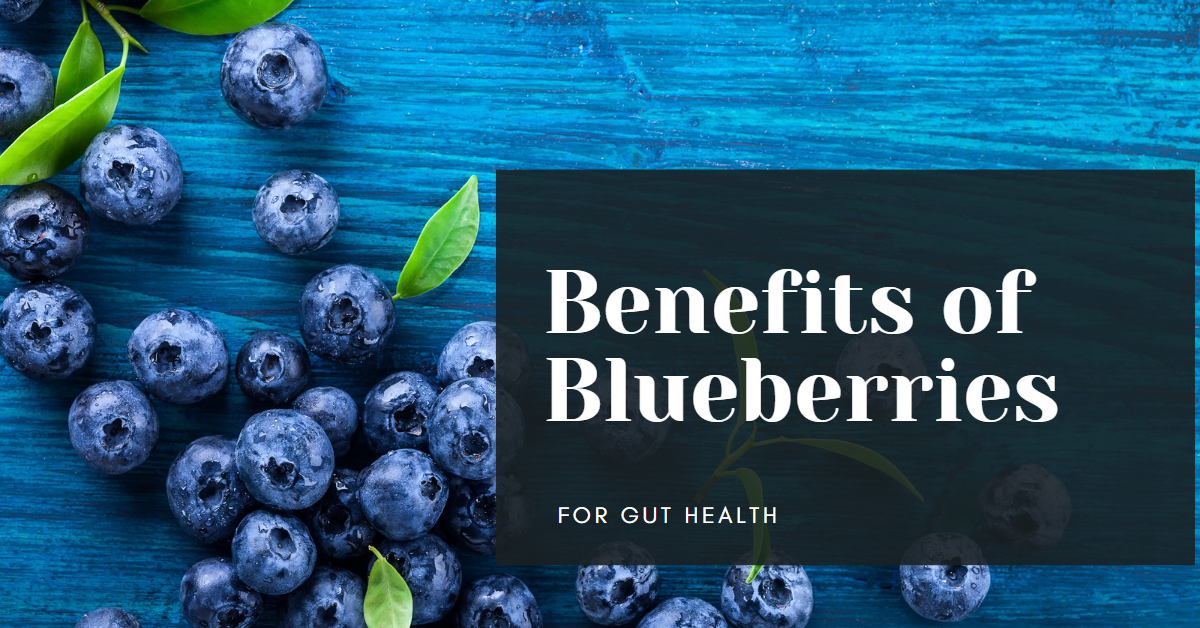Blueberries are a popular fruit that are loved for their sweet taste, but they also have a range of benefits for gut health. In this article, we’ll explore the many ways in which blueberries can help support a healthy gut.
Blueberries are rich in antioxidants
Antioxidants are compounds that protect our cells from damage caused by free radicals. Blueberries are one of the best sources of antioxidants.
Blueberries may improve gut bacteria
Blueberries contain prebiotics, which are compounds that support the growth of beneficial bacteria in the gut. In addition, the polyphenols found in blueberries have been shown to increase the abundance of beneficial bacteria, while reducing harmful bacteria.
Blueberries can help to reduce digestive issues
Blueberries can help with a range of digestive issues, including bloating, cramping, and diarrhea. The antioxidants in blueberries can help alleviate various other symptoms in the gut.
Blueberries can improve digestion
The fiber content in blueberries can help to promote healthy digestion. Fiber helps to bulk up the stool and promote regular bowel movements, which can help to prevent constipation.
Blueberries can help to support a healthy immune system
The gut is home to a large number of immune cells, and a healthy gut is essential for a strong immune system. The antioxidants in blueberries can help to support the immune system, which may help to reduce the risk of infections and illnesses.
Blueberries can improve mental health
The gut-brain connection is a complex relationship between the gut and the brain, and a healthy gut is essential for good mental health. The antioxidants in blueberries may help to improve mood.
Blueberries are easy to incorporate into your diet
One of the best things about blueberries is that they are easy to incorporate into your diet. They can be eaten raw as a snack, or added to smoothies, salads, or yogurt. Blueberries can also be used in baking, and are a great addition to muffins, pancakes, and bread.
Citation List
Harvard Health Publishing. (2016). Antioxidants: Beyond the hype. https://www.health.harvard.edu/staying-healthy/antioxidants-beyond-the-hype
Huang, W. Y., et al. (2016). The beneficial role of berry polyphenols in cardiovascular disease and cancer prevention. Applied Physiology, Nutrition, and Metabolism, 41(8), 797-806. https://doi.org/10.1139/apnm-2015-0226
Kim, B., et al. (2019). Blueberry consumption and gut microbiota community structure: A dose-response study in healthy volunteers. Food & Function, 10(3), 1753-1762. https://doi.org/10.1039/C8FO02478J
Mazza, G., & Kay, C. D. (2018). Bioavailability and bioefficacy of polyphenols in humans. II. Review of 93 intervention studies. International Journal of Food Sciences and Nutrition, 69(3), 287-307. https://doi.org/10.1080/09637486.2017.1348035
Mayo Clinic. (2021). Ulcers. https://www.mayoclinic.org/diseases-conditions/peptic-ulcer/symptoms-causes/syc-20354223
Pimpão, R. C., et al. (2019). Polyphenols: Immunomodulatory and therapeutic implications in colorectal cancer. Frontiers in Physiology, 10, 729. https://doi.org/10.3389/fphys.2019.00729
Suez, J., et al. (2019). Post-Antibiotic gut mucosal microbiome reconstitution is impaired by probiotics and improved by autologous FMT. Cell, 178(4), 944-955. https://doi.org/10.1016/j.cell.2019.07.016
Toner, C. D., et al. (2020). Blueberries and their anthocyanins: Factors affecting biosynthesis and properties. Comprehensive Reviews in Food Science and Food Safety, 19(1), 329-348. https://doi.org/10.1111/1541-4337.12509
University of Maine Cooperative Extension. (n.d.). Maine wild blueberries: Health benefits. https://extension.umaine.edu/blueberries/health-benefits/
U.S. Department of Agriculture. (2019). Blueberries, raw. https://fdc.nal.usda.gov/fdc-app.html#/food-details/167746/nutrients







